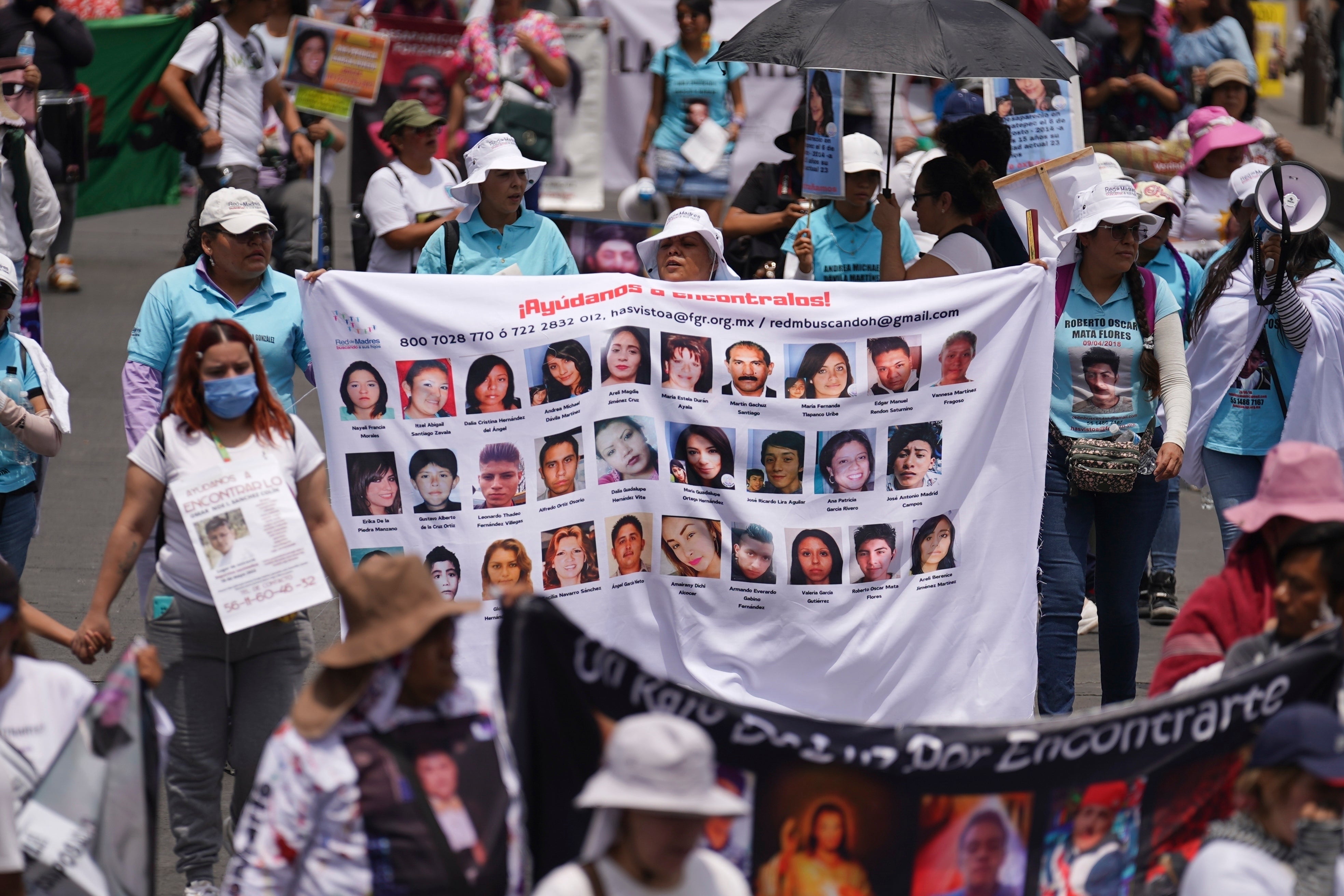Prosecutors in northern Mexico say they'll investigate case of long-missing man found in morgue
Prosecutors in northern Mexico say they’ll investigate after the body of a long-missing man was found after months lying unidentified in a state morgue

Your support helps us to tell the story
From reproductive rights to climate change to Big Tech, The Independent is on the ground when the story is developing. Whether it's investigating the financials of Elon Musk's pro-Trump PAC or producing our latest documentary, 'The A Word', which shines a light on the American women fighting for reproductive rights, we know how important it is to parse out the facts from the messaging.
At such a critical moment in US history, we need reporters on the ground. Your donation allows us to keep sending journalists to speak to both sides of the story.
The Independent is trusted by Americans across the entire political spectrum. And unlike many other quality news outlets, we choose not to lock Americans out of our reporting and analysis with paywalls. We believe quality journalism should be available to everyone, paid for by those who can afford it.
Your support makes all the difference.Prosecutors in northern Mexico said they will investigate the case of a long-missing man whose body was found lying unidentified in a state morgue, despite pleas months ago to find him.
The Zacatecas state prosecutor’s office said late Thursday it had “opened investigations into the situation and to determine whether any public servant was responsible for failing to act.”
The man’s mother, Virginia de la Cruz, had approached authorities in the north-central state of Zacatecas eight months ago for help in finding her missing son, José Alejandro. For months, prosecutors told De la Cruz they had no information. But she found they had her son's body all that time.
Mexico has about 115,000 missing people, whose relatives often have to search for them with their own resources in the face of government inaction. But the country also has a backlog of about 50,000 corpses that have been found, but which authorities don’t have the manpower or equipment to identify.
De la Cruz’s son was finally found to be one of them, after he went missing in November, 2023. But it wasn't even authorities who identified him — it was his mother.
On one of her countless trips to prosecutors' offices and the morgue, De la Cruz was asked to step into the morgue in early July to look at one body that had been found months before.
The corpse's face was too disfigured by a gunshot wound to be recognizable, De la Cruz recalled in an interview Friday with local media. But she had an idea.
“Show me his hands, because his hands had ‘Alex’ tattooed on them,” she asked. “They showed me both of his hands, and in fact, it was my boy,” she said, weeping.
Nobody paid much attention to the case — or facilitated the release of the body for burial — until De la Cruz burst onto the floor of the state congress, shouting, weeping and swearing at the inaction of officials.
“They had the DNA, and they never called me,” sobbed De la Cruz on the floor of the state Congress Thursday.
DNA testing is often the best way to identify the bodies, but Mexico has not spent enough money or effort to speed up such tests, subjecting mothers to months, years and even decades of uncertainty and suffering.
In turn, some morgues are so overwhelmed they either have to hold hundreds of bodies — sometimes in refrigerated trailers — or bury them unidentified while families are left to wonder what happened to their loved ones.
The governmental state human rights commission said it had also opened an investigation into the case of De la Cruz’s son.
The Zacatecas volunteer search group Blood of My Blood — one of hundreds of such groups in Mexico mainly made up of mothers of the disappeared — said that unfortunately, De la Cruz's experience was all too common.
“This painful case is just a reflection of a generalized crisis in Zacatecas and in Mexico,” the group wrote in a statement.
Zacatecas is one of the states where bloody turf battles between rival drug cartels have caused the most carnage.
___
Follow AP’s coverage of Latin America and the Caribbean at https://apnews.com/hub/latin-america